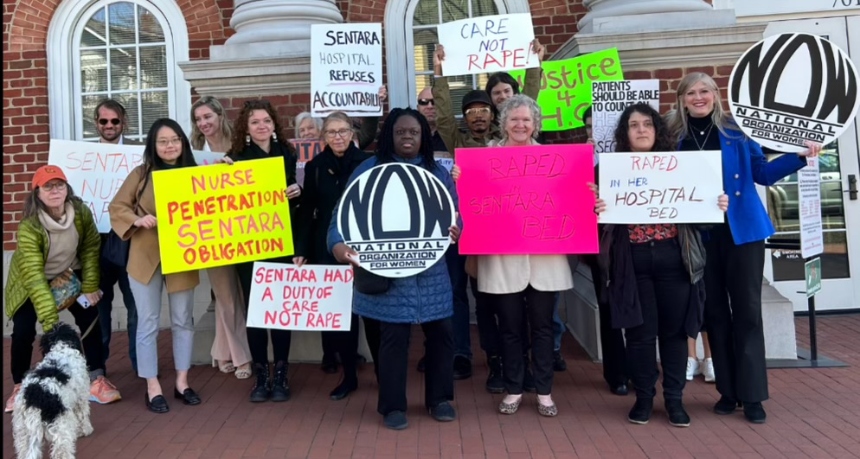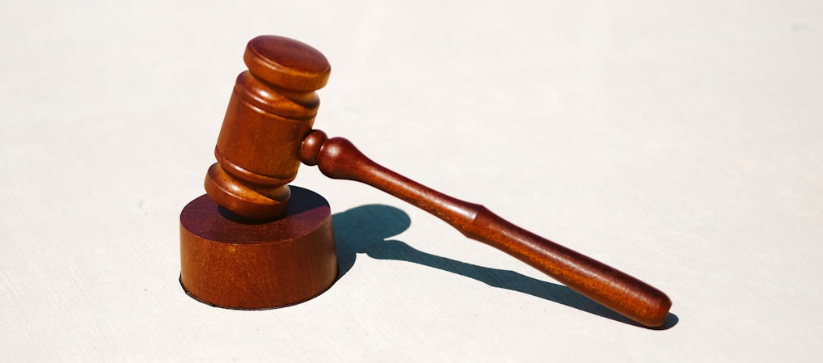
by Adele Uphaus
MANAGING EDITOR AND CORRESPONDENT
A case that was heard this week in Fredericksburg by the Court of Appeals of Virginia could have a wide-reaching impact on how employers are held responsible for sexual assault or harassment perpetrated by their employees, advocates say.
The Virginia chapter of the National Organization of Women held a rally at the Fredericksburg court house on Wednesday morning in support of “H.C,” who brought the case in question against Sentara.
In August of 2017, H.C. was hospitalized at Sentara Northern Virginia Medical Center in Woodbridge. While she was there, she was sexually assaulted by Frederik Yeboah, the nurse assigned to her care.
Yeboah had been investigated and disciplined for sexual harassment of coworkers and one other patient while employed at Inova Mount Vernon Hospital. He resigned and was rehired at Sentara, according to a 2023 article from the Richmond Times-Dispatch.
H.C. sued both Yeboah and Sentara in civil court for damages, but a Prince William County judge agreed to a motion to strike entered by attorneys for the hospital system, and the case was never heard by a jury.
Yeboah was convicted of criminal charges of sexual battery and is serving a 10-year sentence, according to the Times-Dispatch article.
Michelle Kallen, former Virginia Solicitor General, argued the appeal of the judge’s decision in the civil case in Fredericksburg Circuit Court, which houses the Court of Appeals for the Virginia’s 4th District, on Wednesday morning.
Virginia NOW entered an amicus brief in support of H.C. It argues that five decades of research show that sexual violence is motivated by a drive to assert power and control, and that employers, such as hospital systems, who put their employees in positions of power over others should be held accountable when violence occurs.
Lisa Sales, president of Virginia NOW, said on Wednesday that the hospital system “should not be absolved of responsibility and must be held accountable for Nurse Yeboah’s assault on H.C.”
“He took advantage of a patient when making medical rounds. It is unforgivable that while ill and at her must vulnerable, Nurse Yeboah violated H.C., who had entrusted him and Sentara with her care,” Sales said. “When sexual assault is reframed as a POWER-motivated issue rather than a sexually-motivated one, it’s clear that the hospital that put the nurse in a
position of power must be, undoubtedly, held accountable for the nurse’s assault on H.C.”
Sales told the Advance that if the Court of Appeals upholds the lower court’s decision in the civil case, it could prevent future survivors from being able to hold other employers accountable for sexual harassment perpetrated by their employees.
“In an already complicated legal arena, where so many people are scared even to come forward, Virginia Courts must NOT erect additional barriers to justice for victims of sexual assault. Because ultimately holding these employers responsible is how we’ll achieve change and a sexual-violence free future,” she said.
Sales said the Court of Appeals could take between 30 and 90 days to render a decision.



